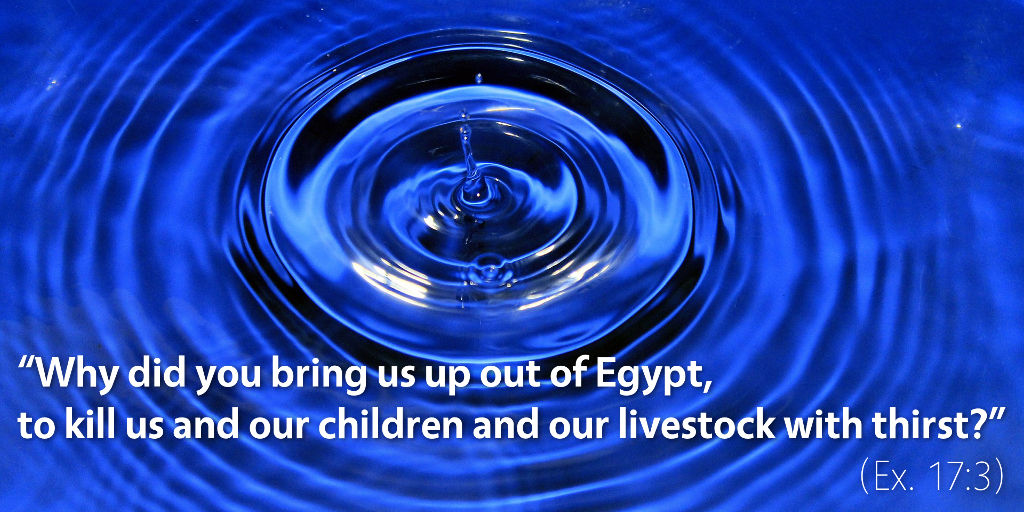Bible Readings for March 6th
Exodus 17 | Luke 20 | Job 35 | 2 Corinthians 5
A terrible pattern is emerging as Israel follows Yahweh through the wilderness toward Mount Sinai. It goes like this: Yahweh accomplishes some great act of redemption for his people, but whenever a crisis emerges, Israel acts as though Yahweh has never done anything other than abandon and neglect them. Rather than meeting every new problem with confidence that Yahweh will continue to act faithfully—just as he has always done—Israel reverts to distrust of Yahweh at every turn.
So, when Israel arrives at a new location after moving by stages through the wilderness (Ex. 17:1), the people again demand water of Moses. Then, when Moses asks them why they would test Yahweh, they respond by asking, “Is the LORD among us or not?” (Ex. 17:7). This is not the response of a people who ask on the basis of their faith, but a people who defy Yahweh time and time again through the wilderness by challenging him to prove his value to them.
Even worse, Israel consistently perverts the value of what Yahweh had done for them by bringing them out of slavery in Egypt. They accuse Moses of wrongdoing, asking, “Why did you bring us up out of Egypt, to kill us and our children and our livestock with thirst?” (Ex. 17:3). The situation gets so bad that Moses feels his life is in danger, with Israel ready to execute him by stoning him (Ex. 17:4).
So what can be done? Yahweh responds in two ways—in one way to provide for the immediate physical needs of Israel and in another to provide for their long-term spiritual needs.
First, Yahweh gives water to the people. He instructs Moses to take the same staff he had used to strike the water in the Nile to turn it to blood (that is, the staff that brought death to the primary source of Egypt’s life) and to strike the rock at Horeb, which would then flow with water (Ex. 17:5–6). Despite the unbelief of Israel, God never fails to provide them with what they need to survive.
But second, we see in this passage the first hint of an active spiritual leadership role for the elders of Israel. Notice that Moses was instructed to do all this while “taking with you some of the elders of Israel” (Ex. 17:5). Yahweh had instructed Moses to take the elders with him when he went before Pharaoh (Ex. 3:16, 18), and the elders had been the ones to sacrifice the Passover lambs (Ex. 12:21), but the time has come for Moses to have help in shepherding the people of Israel in the face of their repeated rebellion. This story makes it clear that Israel needs more spiritual oversight than Moses can provide for them alone.
We’ll pick up this theme of Israel’s need for plurality in their spiritual leadership tomorrow.
Podcast: Play in new window | Download (4.9MB) | Embed
Subscribe: Apple Podcasts | RSS | More

Scripture quotations are from The Holy Bible, English Standard Version copyright © 2001 by Crossway Bibles, a division of Good News Publishers. Used by permission. All rights reserved.


